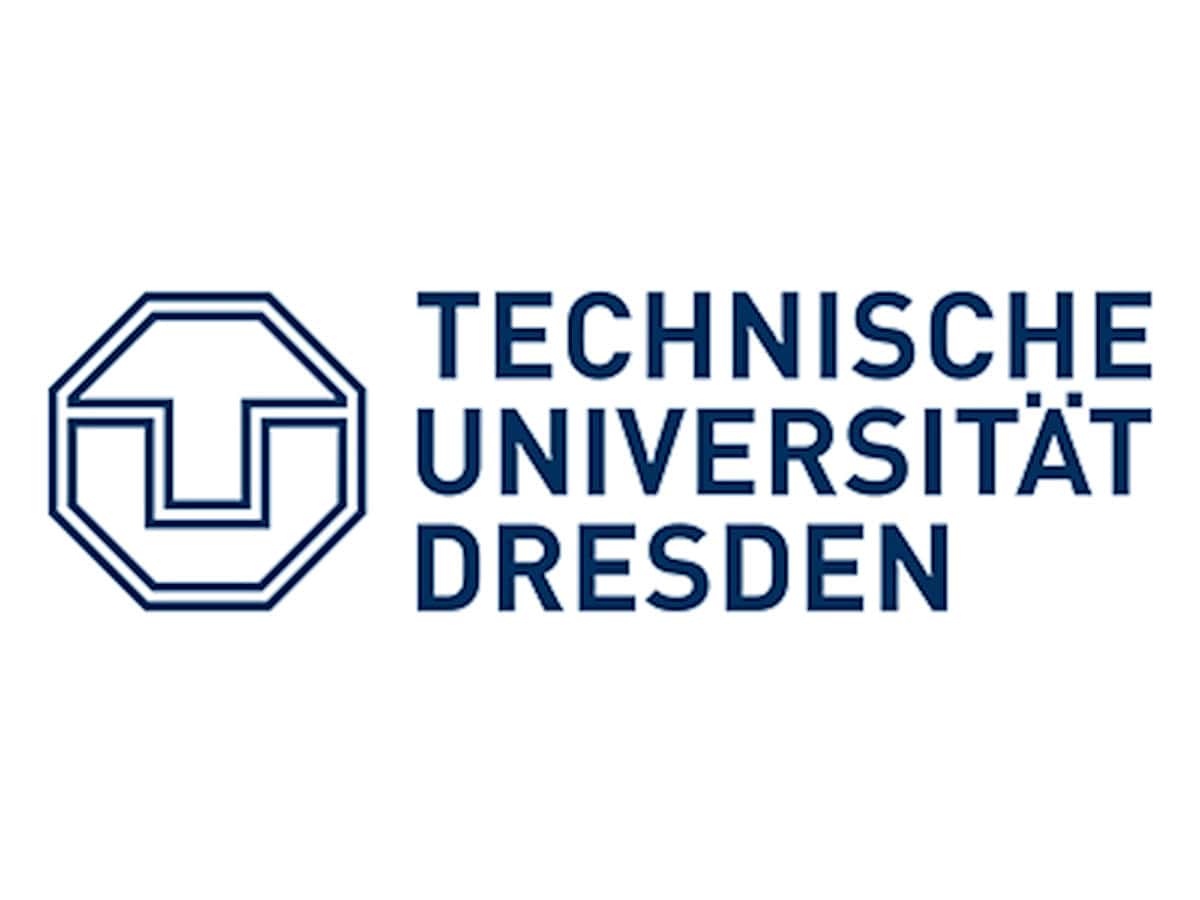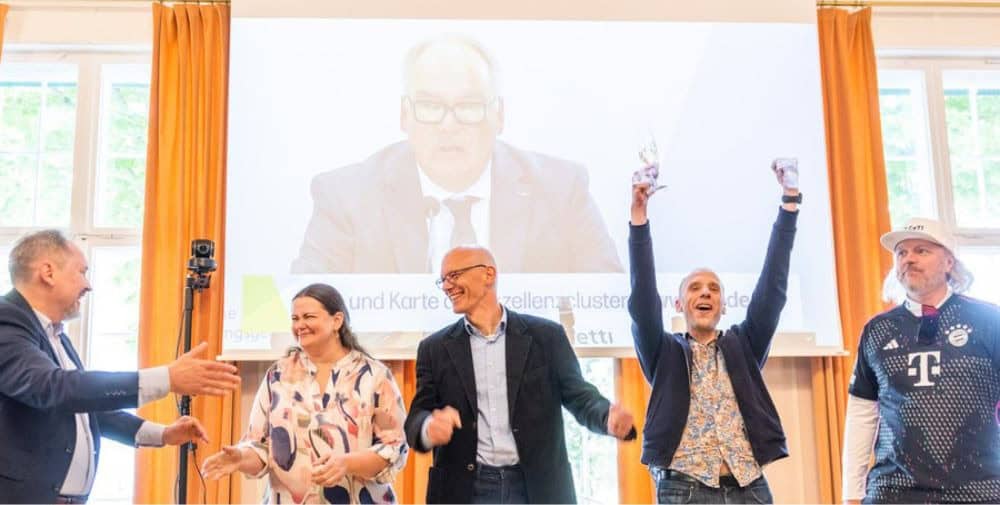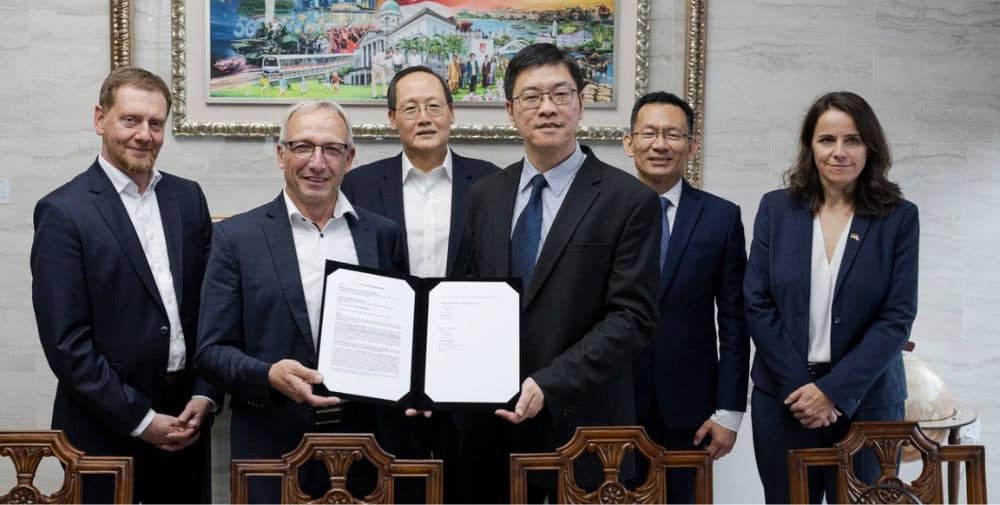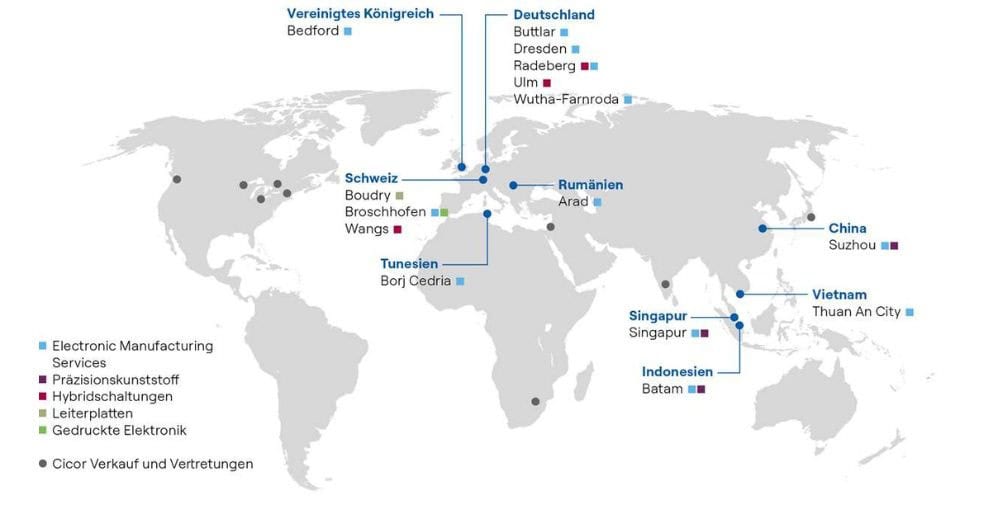
TUD is responsible for three clusters on its own, two in cooperation, one with Julius-Maximilians-Universität Würzburg and one with RWTH Aachen University. The five Clusters of Excellence are located in the fields of resource-efficient construction, sustainable microelectronics, robotics and tactile internet, quantum materials and the physics of life. With three clusters under its own responsibility and two cooperative clusters, TUD is one of the top 5 universities in Germany and is the strongest technical university in this competition.
The Rector of TUD, Prof. Ursula M. Staudinger, accepted the funding decision to the great cheers of around one hundred guests – including the members of the Extended Rectorate and the spokespersons of the Clusters of Excellence and Cluster of Excellence Initiatives. Prof. Ursula M. Staudinger, Rector of the TUD: “The fact that we are entering the new funding phase with five Clusters of Excellence from this highly competitive process is an outstanding success and a clear sign for the TUD as one of the most powerful technical universities in Germany and the DRESDEN-concept research alliance. Our university is thus demonstrating that it is taking on a leading role in key scientific and social fields of the future – and is living up to its claim of being a top university for the 21st century by making significant contributions to tackling pressing global challenges. My heartfelt thanks go to all those involved in science and administration who have made this success possible with their extraordinary commitment. We now have a strong tailwind going into the upcoming assessment as a University of Excellence in November!”
Prof. Angela Rösen-Wolff, Vice-Rector for Research at TUD: “This success confirms the scientific excellence of TUD. Five successful clusters show that we are convincing both in terms of research continuity and innovative approaches at the highest level. The continued funding of the three existing Clusters of Excellence and the approval of two new ones will not only enable us to continue our existing excellent research in important future fields and further develop our profile in the area of cutting-edge research. I am convinced that we will set standards in all these fields of research in the future.”
Saxon Science Minister Sebastian Gemkow joined us live from Bonn in the Rectorate’s ballroom to congratulate the University of Excellence TUD: “In the competition between the best universities and top research areas in Germany, TU Dresden and, for the first time, Leipzig University have impressed with their outstanding cluster proposals. I would like to congratulate them wholeheartedly and at the same time assure them that the Free State will continue to accompany and support the excellent research at both universities, as it did throughout the entire application phase. This is a huge success not only for the universities themselves, but for the entire scientific state of Saxony. Over the next seven years, this great success will bring around EUR 200 million in federal funding for the six clusters to Saxony. Both the universities and non-university research institutions, as well as the companies here in Saxony, will benefit from cutting-edge research in future-oriented fields. It is about technology development and competitiveness in international comparison. The decision of the Excellence Commission is proof of the efficiency, creativity and extraordinary innovative strength of our universities and their partner institutions in research and industry. The Excellence Competition has demanded a great deal from all universities and project teams that have taken part since the first outlines were drawn up. New research approaches were created that can now be pursued further, even if they are not earmarked for cluster funding. I am grateful for the work that has been done here at all the institutions.”
A total of 70 clusters received the green light from the DFG and the WR today. The new seven-year funding phase begins on January 1, 2026 and the clusters will receive up to ten million euros per year from the federal and state governments.
Background: The TUD Clusters of Excellence – Statements from the Cluster Spokespersons
CARE: Climate-Neutral and Resource-Efficient Construction (TU Dresden together with RWTH Aachen University)
Conventional concrete and cement account for 80 percent of building materials and are responsible for more than 8 percent of global CO2 emissions during production. The CARE Cluster of Excellence at TU Dresden (spokesperson: Prof. Viktor Mechtcherine) and RWTH Aachen University (spokesperson: Prof. Martin Claßen) aims to use climate-friendly building materials, new construction principles, production technologies and circular economy tools to show ways towards sustainable construction.
Cluster spokesperson Viktor Mechtcherine, Professor of Building Materials at TU Dresden: “The funding of the Cluster of Excellence CARE is an outstanding signal of recognition of the expertise and cutting-edge research that we have built up at TU Dresden in the field of sustainable construction in the truest sense of the word. Furthermore, this funding is a decisive step towards the transition to a climate-neutral construction sector – one of the greatest levers for climate protection. At CARE, together with our partners at RWTH Aachen University, we are developing innovative and well-founded solutions for highly productive, resource-saving construction methods and the sustainable use of existing buildings. In addition to the implementation of our ambitious research program, close collaboration with politics, business and society is a central concern for us, so that the rapid transfer of results into construction practice is successful.”
REC2: Responsible Electronics in the Climate-Change Era
Cluster spokesperson: Prof. Yana Vaynzof
Electronics offer numerous benefits for our lives, but at the cost of enormous resource and energy consumption and the generation of large quantities of electronic waste. The REC² cluster creates the scientific basis for the electronics of the future: new material platforms, innovative component concepts and integrated systems that can be used to realize responsible electronics in an ecologically, economically and socially sustainable way.
“The entire REC² team is delighted that our Cluster of Excellence is being funded! We are looking forward to tackling a current topic of global importance – the realization of responsible electronics. With expertise from nine different disciplines, we are creating the scientific foundations for the electronics of the future: new material platforms, component concepts and integrated systems with which electronics can be manufactured, used and disposed of in an ecologically, economically and socially sustainable way. In this crucial time of climate change, REC² will make Dresden a world leader in the field of sustainable electronics and strengthen this growing research and technology location for microelectronics in Saxony in the long term.”
Continuation applications from TU Dresden
CeTI: Centre for Tactile Internet with Human-in-the-Loop
CeTI is driving forward efficient collaboration between humans and machines. One application is the co-working of humans and machines with mutual learning and across distances without programming knowledge. This requires the development of new technologies for real-time communication as well as robust models of the human body and its ability to react.
Cluster spokesperson: Prof. Frank H. P. Fitzek: “We are very happy and relieved that after months of intensive waiting, it is now clear that our CeTI Cluster of Excellence can enter its second funding phase. We are even happier that we can continue to work on the exciting and socially enormously important topic of ‘humans and robotics’ on an interdisciplinary basis. Only in a Cluster of Excellence is it possible to bring together so many different disciplines and conduct joint research at the highest level. Today, we want to enjoy this special moment – before we work at full speed to provide significant impetus for research and social engagement over the next seven years.”
ctd.qmat: Complexity, Topology and Dynamics in Quantum Matter (TU Dresden together with Julius-Maximilians-Universität Würzburg)
ctd.qmat develops new quantum materials with customized functionalities that form the indispensable basis for technological progress. The cluster, which is supported by the TUD and the University of Würzburg, combines physics, chemistry and materials science and links two of the world’s leading research locations for condensed matter. It builds a bridge between theoretical and experimental basic research with a strong application focus.
Cluster spokespersons: Prof. Matthias Vojta and Prof. Ralph Claessen (Julius-Maximilians-Universität Würzburg – JMU).
Matthias Vojta, Professor of Theoretical Solid State Physics at the Technical University: “We were eagerly awaiting the decision of the Excellence Commission! It was exciting right up to the last minute – now we are all the more pleased that we can continue our work together with the Würzburg colleagues. In the last funding period, we achieved internationally acclaimed successes in the development of new quantum materials. We also have big plans for the next seven years to advance topological quantum physics.”
PoL: Physics of Life. The Dynamic Organization of Living Matter
Understanding life is one of the greatest and most complex scientific challenges. The Cluster is transforming our understanding of living matter by uncovering how physics controls fundamental processes in cell and developmental biology.
Cluster spokesperson: Prof. Otger Campàs: “Funding the Cluster of Excellence Physics of Life – PoL for its next phase represents an outstanding opportunity to take cutting-edge research at the Cluster of Excellence to a new level, with the aim of understanding what brings matter to life. Research at PoL investigates the fundamental physical principles underlying the complex organization of living systems, from molecules to cells and tissues. This physical perspective will fundamentally change our understanding of biology – and therefore medicine. In the future, PoL will use its unique perspective and approach to understand key features of living systems, including the emergence of function and robustness. Equally important, PoL will bring innovative teaching strategies to train the next generation of scientists in how to connect the worlds of physics and life sciences. PoL is firmly embedded in Dresden’s vibrant research environment and will continue to expand its collaboration with leading partners locally and globally.”
Background: TUD as a University of Excellence
TUD has already been successful in the previous Excellence Initiative of the German federal and state governments. The first cluster was awarded to TUD in 2006 and it was first awarded the title of University of Excellence in 2012. Since 2019, TUD has been permanently funded as a University of Excellence as part of the Excellence Strategy of the federal and state governments. As such, it must undergo an evaluation every seven years. The next evaluation by an international panel of experts will take place in November 2025.
Background: The new funding phase for Clusters of Excellence
Currently, 57 Clusters of Excellence are being funded across Germany. For the next funding phase, 41 projects from a total of 143 outlines submitted – in addition to the already funded clusters – were invited by the DFG and WR expert panel to submit full proposals. This meant that a total of 98 proposals were in the running for funding by the time the funding decision was made. In the new funding phase 2026-2032, 70 clusters will now be funded. From 2026, the federal and state governments will provide a total of 539 million euros annually to fund the new clusters of excellence. The term of the new funding phase is seven years and begins on January 1, 2026.
– – – – – –
Further links
👉 https://tu-dresden.de
Photo: Sven Ellger / TUD




